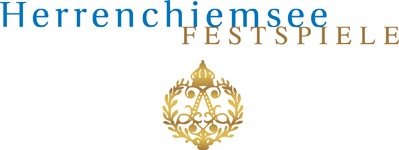OF FOREIGN LANDS AND PEOPLES
Escape to the unknown. The German term “Heimweh” (homesickness, nostalgia) is a surprisingly new word. It appeared for the first time in 1651 in a medical report about Swiss soldiers who had been serving as mercenaries in numerous European armies. The opposite term “Fernweh” (wanderlust) is even more recent. It was not until the mid-19th century that it became part of common German vocabulary. This was probably closely linked to the first major wave of emigration to America, and especially to the famous “gold rush” of 1848, when great technical progress in passenger shipping traffic made the passage both affordable and comfortable and thus all the more appealing. However, it was not until the late 20th century that “Fernweh” became a standard term in the tourism industry.
Royal utopias. As for the architectural dreams of King Ludwig II of Bavaria, it seemed more like travelling back in time to the romantically transfigured Middle Ages or Versailles designed by King Louis XIV. Nevertheless, it did not take the monarch long to conceive construction projects for illusionist representations of faraway worlds. For instance, he planned to build a byzantine and, at a later stage, even a Chinese palace in the middle of the Bavarian Graswangtal valley. And when his architectural fantasies began to fail in the face of financial reality, he seriously considered transferring his main residence to Tenerife or to one of the other Canary Islands. His bold utopias have once again pre-empted modern tourist dreams.
Of foreign lands and peoples. When Robert Schumann composed his “Kinderszenen” (Scenes from Childhood) in 1838, he initially downplayed their quality and importance in a conversation with his friend and artistic partner Clara Wieck: “I have written some thirty cute little pieces of which I have selected twelve and called them Kinderszenen.” However, this statement concealed that the miniatures in question are, by no means, harmless exercises for piano students, but rather represent tiny works of art for adults who are invited to rediscover their inner childhood soul. The opening piece “Von fremden Ländern und Menschen” (Of Foreign Lands and Peoples) is like a guiding motto for the entire series, and its most striking virtue is not to show off musical exoticism but rather to fully dive into the imaginary world of the children of that time.
A world tour of music. The 2015 edition of the Herrenchiemsee Festival will use Schumannís motto to present music from all over the world without, of course, ever losing sight of its “patron” King Ludwig II. The obligatory opening concert with four Bach cantatas will make reference to the journey of the Three Wise Kings from Saba to Bethlehem. An extraordinary and bold programme will combine Venetian and Turkish music about the Battle of Lepanto. The festival will feature Smetanas ode to his Czech “Vaterland” (homeland) as well as Purcellis British “King Arthur” and Puccinis emigration opera “Manon Lescaut”. This world tour of music would not be complete without the “Scottish Symphony” by Felix Mendelssohn as well as music by the Russian masters Mussorgsky and Tchaikovsky. And finally, the highly acclaimed 2012 performance of Robert Schumannís secular-exotic oratorio “Paradise and the Peri” will once again be included in the programme.

